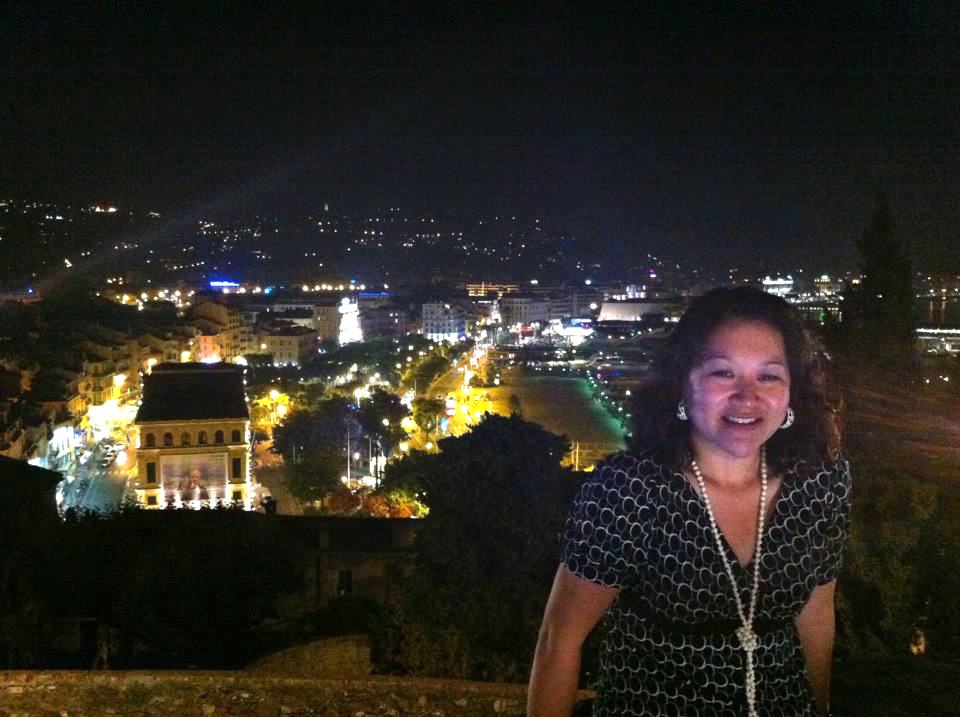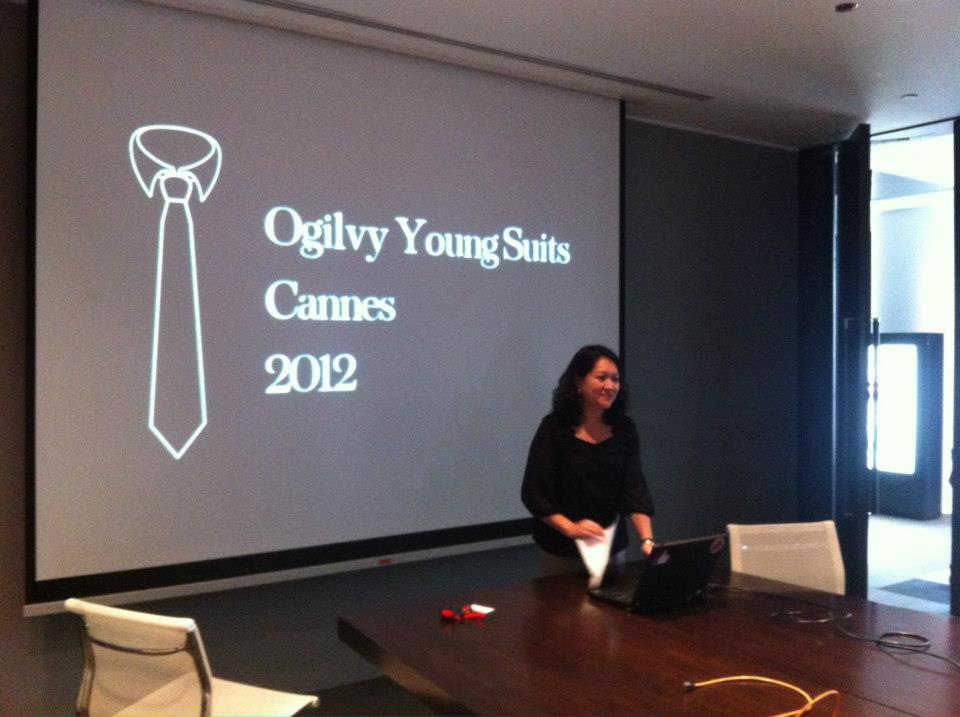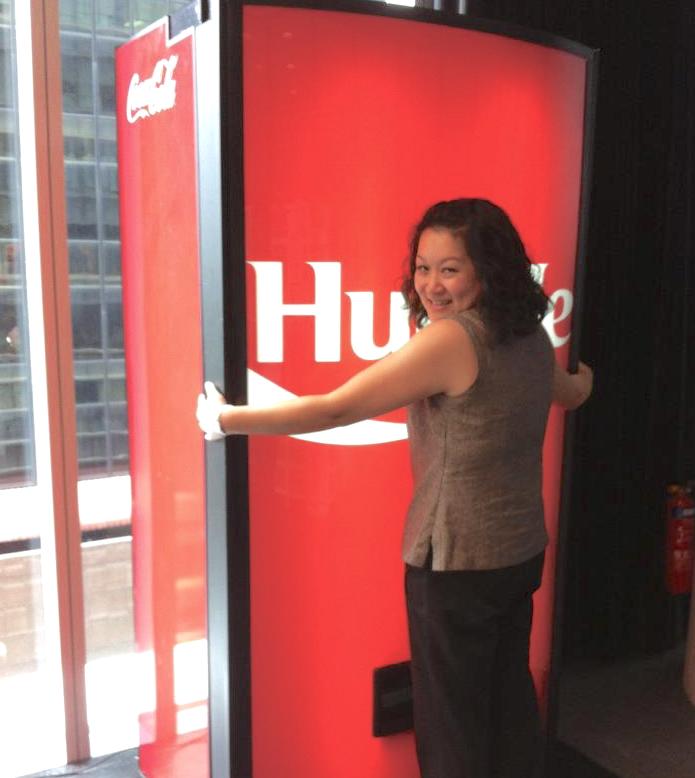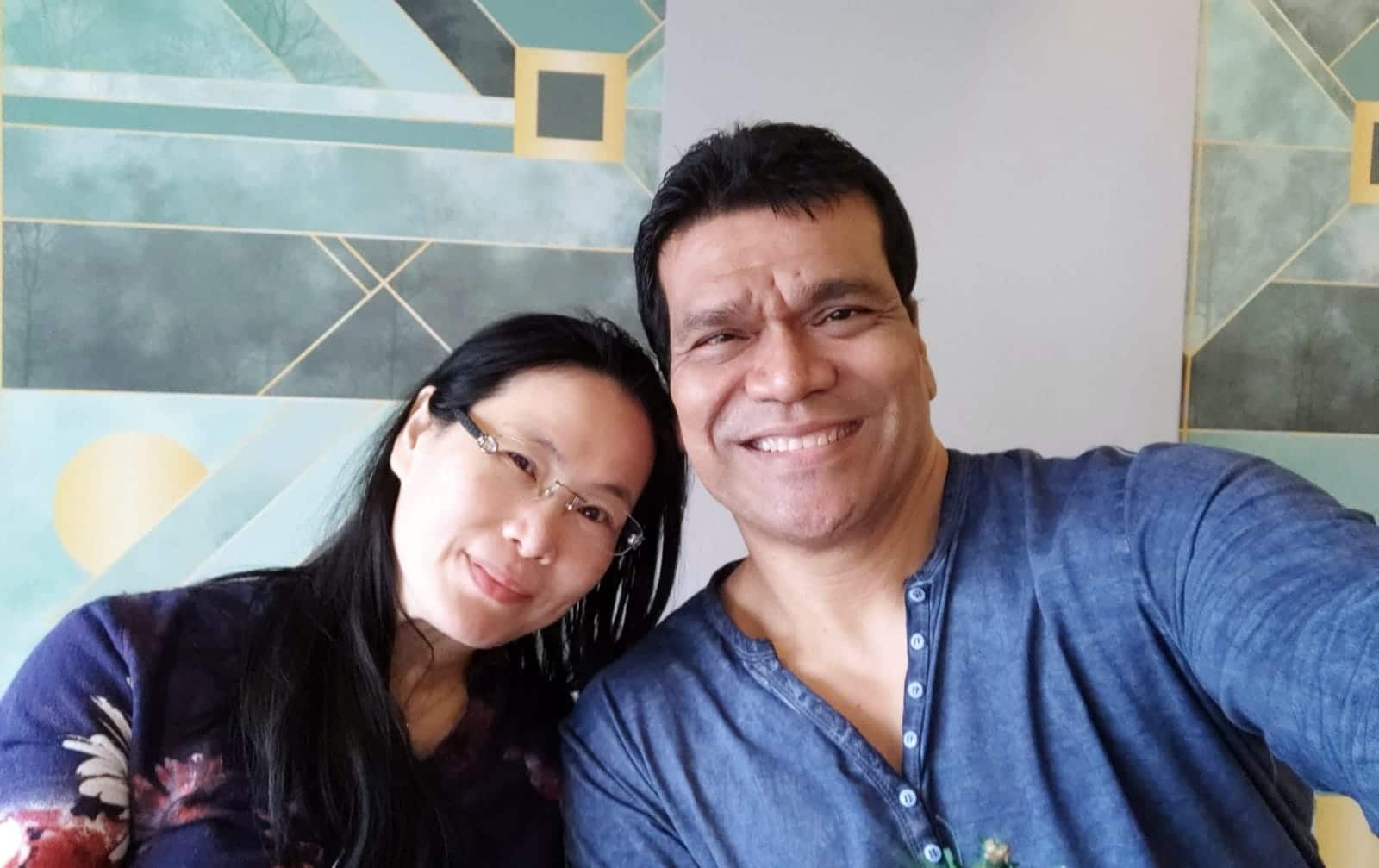Hannah Lau’s Astera Asia is helping “the little guys” make it big
by Tan Huey Ying // March 29, 2019, 5:00 pm

All things bright and beautiful: Hannah Lau in Cannes, where her call from God came to her in a headline. All photos by Hannah Lau.
Seated on the ledge of a scenic European lookout, Hannah Lau pondered over the circumstances she found herself in.
The year was 2012. She was in France at the Cannes Lions International Festival of Creativity – the Oscars of the advertising world – and God seemed to have made a specific call on her life through a headline: “Corporate skills for ministry purposes.”
But she was drawing a confused blank: She had no idea what that meant, or how she fit into it.

Way ahead: Hannah Lau was an award-winner in the competitive ad industry when she was only 28.
Only 28 then, Lau was Ogilvy Singapore’s Young Suit of the Year and riding high on a fast-moving trajectory. But she knew it was not her end-game.
“God was preparing me for something, but I didn’t know what for,” she says.
More than marketing
Since graduating from university with a degree in business and marketing, Lau’s adventure with God had already taken her out of the IT industry and into advertising, and from Canada to China before settling her in Singapore.
Her portfolio at Ogilvy, which she had joined in 2011, was chockful of clients in healthcare and pharmaceuticals. Lau handled products and services like cancer drugs, medical services and even surgery options.
The weight of the responsibility had caused her to rethink all she knew about marketing strategy. “You’re not just selling a bottle of shampoo,” she emphasises.
“This is impacting life in a different way. This changes lives.”
“I care about people. And it matters to me that individuals are helped.”
The opening of a clinic that specialised in a new form of colorectal surgery, one that was significantly less invasive and thus less risky, is an example she cites.
As she conducted and reviewed the dozens of interviews that were a part of her research, Lau began to realise the tangible impact her work had on individual lives – in terms of pain, recovery time and even risk assessment.
That made things very personal.
With business and organisational lenses added to her perspective, she devised a holistic problem-solving approach to the challenges. The craft she had long been honing was becoming a whole lot more multi-dimensional, and she loved it.
Her work was no longer just about marketing; it was about people, the lives they lived and the hope that they would come to know Jesus one day.

It’s about caring for people: Hannah Lau’s approach to marketing encompasses all sorts of problem solving.
“I’m more rational than emotional, so in marketing, it can feel like I’m just talking to the world, but I care about people. And it matters to me that individuals are helped.
“In the mission field, whether you’re hugging orphans or not, you’re there because, second to Jesus, you care about people. That’s why you go into missions, right?”
And she viewed the advertising industry as her mission field. It was the reason she had uprooted and flown across the world to live and work in Asia in the first place.
Unanswered questions
But that “corporate skills for ministry purposes” headline nagged at her conscience. Lau knew she needed to explore what it meant – even if she had to head out of the corporate world into the unknown once again.
There were many questions and potential problems: Did “ministries” – whether church or secular non-profits – need her skills? How would marketing help the work they did?
“Let’s just try and see how it goes,” she reasoned in spite of the uncertainty, knowing that God had something bigger in mind for her.
“I said to God: ‘I don’t know about this, but I’ll try it for a year. We’ll see how it goes.’ ”
Lau left Ogilvy and joined Ravi Zacharias International Ministries (RZIM) in 2013. By the end of her first year, she was awed by the scale of the work ahead of her.
“Goodness, there was such a big need. People kept coming and saying: How do we find someone like you?” she says.
She didn’t understand at first. Only later did she realise: “There is a whole sector of what we call ‘the little guy’ that has no access to corporate-level expertise in things like organisation development, marketing and communications.”
In December 2014, Lau decided to leave RZIM and freelance for these “little guy” outfits. It was a move that drew much concern, namely: Was it financially sustainable?
“Again, I said to God: ‘I don’t know about this, but I’ll try it for a year. We’ll see how it goes.’ ”
Filling a gap
The need was overwhelming. Mission organisations, social enterprises, small ministries and businesses – many of which were spearheading unconventional initiatives – lacked the synergy of a well-planned organisational, branding and marketing strategy.
Lau had clients like White Lily, for example, which offers both Christian and non-religious funeral services in church venues across Hong Kong. In a city where death is often seen as taboo, the business helps meet the felt needs of the grieving while bringing them comfort and healing.
ChinaSource is a ministry that helps “facilitate informed discussion around critical issues facing China and its churches”, she explains, acting as a bridge that brings the voice of the Church in China to the rest of the world.
God had proven Himself able to provide for her. But what about an entire team and an office?
Based outside the country, its team of analysts serves the Chinese church by producing pertinent analyses, fostering collaboration and the sharing of resources.
Lau had so much work that she started getting other freelancers involved.
One year became two and then three, bringing her to yet another decision point: “Do I scale up or down?”
She was now standing on firm ground and fulfilling the call of God on her life. Her corporate skills were coming into Kingdom use for various ministries around the world in a financially sustainable way.
God had proven Himself able to provide for her. But what about an entire team and an office? Was expansion part of His call too?
True to her nature, Lau made a bold decision: She’d try it out for a year, with each step building upon the last as she followed the leading of God in obedience.
Greater capacity
In January 2018, Lau registered Astera Asia and hired the first members of her staff. Today, she has a team of four and a worldwide network of freelancers.

Registered in 2018, Astera Asia provides Asian expertise and experience that speak into the needs of “little guy” businesses.
Her initial confusion while in Cannes has been replaced by Astera Asia‘s clearly-articulated objectives. The first is: A servant providing corporate-level Asian expertise and experience to speak into the cultural nuances and needs of “the little guys”.
“If God shows you something, you’ve just got to do it.”
The second is one Lau recently added. She says: “We recognise there is a responsibility to be a thought-leader in this field, in setting examples, conducting training and sharing our expertise” – especially because Astera Asia is one of the first for-profit organisations that combines the creative, ministry and business spaces.
Lau means for her company to be a blessing to the world without discriminating against non-faith-based organisations.
And in case her bold steps of faith are misattributed to ambition, she is quick to qualify: “There was definitely anxiety about the unknown. But each move was essentially walking in obedience.
“If God shows you something, you’ve just got to do it.
“And even if you don’t know what you’re doing but you are certain that you are in the centre of God’s will, then all that matters is that you keep going.”
“Aim high – if you shoot at nothing, you’ll hit it every time”: John Irvine, Gloria Jean’s Coffees
We are an independent, non-profit organisation that relies on the generosity of our readers, such as yourself, to continue serving the kingdom. Every dollar donated goes directly back into our editorial coverage.
Would you consider partnering with us in our kingdom work by supporting us financially, either as a one-off donation, or a recurring pledge?
Support Salt&Light


